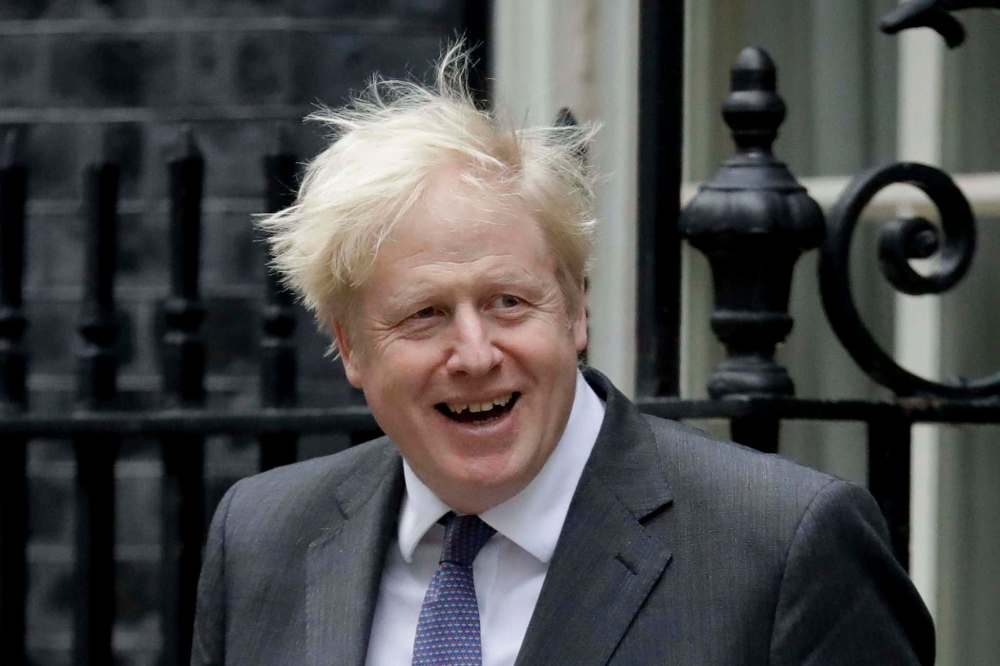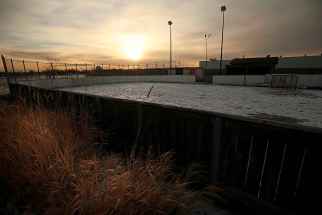Brexit talks: breaking up is hard to do
Read this article for free:
or
Already have an account? Log in here »
To continue reading, please subscribe:
Monthly Digital Subscription
$0 for the first 4 weeks*
- Enjoy unlimited reading on winnipegfreepress.com
- Read the E-Edition, our digital replica newspaper
- Access News Break, our award-winning app
- Play interactive puzzles
*No charge for 4 weeks then price increases to the regular rate of $19.00 plus GST every four weeks. Offer available to new and qualified returning subscribers only. Cancel any time.
Monthly Digital Subscription
$4.75/week*
- Enjoy unlimited reading on winnipegfreepress.com
- Read the E-Edition, our digital replica newspaper
- Access News Break, our award-winning app
- Play interactive puzzles
*Billed as $19 plus GST every four weeks. Cancel any time.
To continue reading, please subscribe:
Add Free Press access to your Brandon Sun subscription for only an additional
$1 for the first 4 weeks*
*Your next subscription payment will increase by $1.00 and you will be charged $16.99 plus GST for four weeks. After four weeks, your payment will increase to $23.99 plus GST every four weeks.
Read unlimited articles for free today:
or
Already have an account? Log in here »
Hey there, time traveller!
This article was published 14/12/2020 (1825 days ago), so information in it may no longer be current.
For a couple supposedly headed for divorce, Britain and the European Union are having huge difficulty actually pulling apart from each other. The top political authorities on each side agreed on Sunday that they should continue negotiating about what they will do next.
On June 23, 2016 – four and one-half years ago, three British prime ministers ago – the British public voted by 52 per cent to 48 per cent to leave the EU. Majorities in Scotland and Northern Ireland favoured remaining in Europe but they were outvoted by English and Welsh majorities in favour of leaving.
David Cameron, the Conservative prime minister who had called the referendum in order to silence the anti-Europe faction in his party, immediately resigned, his place taken by Theresa May. The party dumped her last year, however, replacing her with former London mayor Boris Johnson, who remains in office.

Britain in a sense quit the EU last January, taking no further part in its governing bodies. The two sides agreed, however, to carry on trade, migration and financial arrangements as before through the year now ending. This would allow them time to figure out what rules would apply from now on.
Britain in a sense quit the EU last January, taking no further part in its governing bodies.
That is proving to be easier said than done. In theory, something has to happen in the early hours of Friday, Jan. 1 – perhaps a continuation of duty-free trade between Britain and Europe, perhaps imposition of trade barriers within the rules of the World Trade Organization or perhaps some other set of rules.
Since the parties have not yet agreed, no one knows what the position will be. Even if they agreed on something today, there is no assurance that the British Parliament and the parliaments of the 27 remaining EU members would endorse the agreement.
The EU contends that Britain cannot enjoy duty-free access to Europe unless it also accepts limits on state subsidies to industry. European countries that have agreed not to subsidize their manufacturers don’t want to face duty-free competition from subsidized British firms.
Britain contends that, as a sovereign nation, it must be free to subsidize any firm it wants to subsidize. Acceptance of EU oversight of its subsidy programs would be an intolerable infringement of its sovereignty.
The two parties also have not agreed how much fish European boats should be allowed to catch in British waters. The British fishing industry needs freedom to sell fish into the European market, but that freedom will come at some price in terms of European access to British waters.
Life inside the EU used to be a continuous negotiation and an endless series of crisis talks. Britain’s first year outside the EU has been much the same.
Underlying the fine points of industrial subsidy and fishing quotas is the human reality that Britain and Europe are inextricably tied together by the vast volume of trade, investment and labour that flows between them across the North Sea and the English Channel. Life inside the EU used to be a continuous negotiation and an endless series of crisis talks. Britain’s first year outside the EU has been much the same. Nor is there any sign that the negotiation will ever be ended and the crisis resolved.
The British poet John Donne noted four centuries ago that “No man is an island entire of itself.” Mr. Johnson is finding now that even an island is not an island entire of itself. In trade treaties all over the world, countries give up bits of sovereignty. Post-Brexit Britain had better get used to it.









